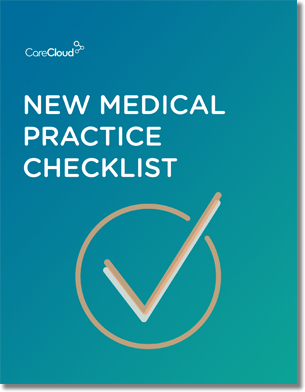While Occupy Wall Street demonstrators are 24-hour news darlings and inspire similar movements nationwide, there’s an online member of the Occupy family emerging from its older cousin’s shadow striving to make an impact.
Occupy Healthcare differs from OWS in several respects. For one, the movement isn’t political or as large but boasts better-defined wishes. Furthermore, their occupation is measured in bytes and hashtags, not square footage and tents at Zuccotti Park.
However, they’re alike in a very important way – there are plenty of lessons we can take from them.
What is Occupy Healthcare?
Dr. Benjamin Miller, a psychologist at the University of Colorado School of Medicine, created the Occupy Healthcare website a few months back as “a way for the community to come together and discuss how we can demand more from healthcare.”
Since then, the group has grown exponentially, mostly via online efforts like Google Groups, Facebook, and Twitter.
“There is no street corner we can all gather on for healthcare,” said Miller.
Occupy Healthcare’s foremost goal is changed. Unlike Occupy Wall Street, the movement promotes clear principles, wishing to change patient, provider, payer, and legislative attitudes around healthcare.
In short, the group wants a system that values the patient over profit. Dr. Miller illustrates this point by discussing the dichotomy between primary care and mental health, which research suggests is illusory.
“Creating a system that works for [this dichotomy] could be integrating mental health providers into primary care,” said Miller. “Our studies and stories are telling us that both patients and providers like it and outcomes are better. Could Occupy Healthcare be […] a living library of stories of patients and providers who have benefited from integration? We think so.”
Occupy Healthcare has a good head on its shoulders, so to speak. Curious to discover what lessons we can learn from the group, Power Your Practice turned to Dr. Miller, who helped us further understand the movement’s philosophy.
Utilize Social Media
Small to mid-size medical practices often struggle to implement new technologies, like switching from paper to digital health records, launching a website or developing a social media presence due to lack of resources or expertise.
While studies indicate the last example is reversing itself, there’s still much work to be done. Occupy Healthcare, like many contemporary organized movements worldwide, used social media to connect would-be leaders of the group.
Dr. Miller stresses engagement. “Without engagement and the relationships formed through that engagement, social media is just an empty vehicle, a one-way street with little meaning.”
This is a key concept for medical practices to understand. Visits to doctors, from primary care check-ups to meeting your podiatrist, are engagements. In theory, practices should be capable of understanding the basics of engagement and cultivating relationships.
Miller cites meeting long-time collaborators in California a week ago, remarking on how familiar they all felt, despite never having met face to face.
“We also use social media as our primary vehicle for dissemination,” continued Miller. “[We] routinely tweet using the hashtag #occupyhealthcare, have a Facebook page, a Google group, and several blogs who repost some of our work.”
Make Healthcare IT Useful
Perhaps predictably, Occupy Healthcare is supportive of technological innovation in the healthcare industry. However, the group’s perspective points to an overarching viewpoint that is sometimes scarce among doctors and healthcare IT trade publications.
While not undermining the value of new technology for technology’s sake, the movement questions whether these innovations will place the patient at the center of healthcare, improve its quality and decrease costs.
“Making a broken healthcare system more efficient through technology may only be a band-aid on top of a band-aid,” said Miller.
Dr. Miller highlights EMRs as an example of the ‘band-aid’ approach, admitting that while they help the healthcare industry, they’ve done little to remedy its “underlying core problems.”
“And, to add insult to injury, we are finding that EMRs and other various technologies have very little interoperability,” he continued. “Does this add to the technology cacophony or does this help us move towards a more effective and efficient healthcare system? Your call.”
Occupy’s Ethos
In a few short months, the word ‘occupy’ has become a media punching bag. So, how does Occupy Healthcare dodge stigmatization?
Dr. Miller insists Occupy Healthcare has been apolitical and multidisciplinary from the start, a claim many of their Wall Street brethren claim but can’t justify.
“Our ethos is one of uniting the community and encouraging them to demand more from healthcare,” said Miller. “To that end, there are many similarities to OWS. [However], Occupy Healthcare has been more social media driven and online.”
The movement is taking a more temperate approach, focusing on building a team, educating the public on the industry’s shortcomings, and offering resources for others who want to get involved.
In the end, Occupy Healthcare is only a couple of months old, but as Dr. Miller states, they have brought together a “community capable of leading our country towards the healthcare system we all need and deserve.”
And despite how sick of “occupy” the country may be, Dr. Miller is upbeat and optimistic.
“Yes, we believe we can achieve this change.”
What have you heard about Occupy Healthcare? How would you help the cause? How do you believe the group can help you?

Do you know what you need when setting up a new medical practice?

